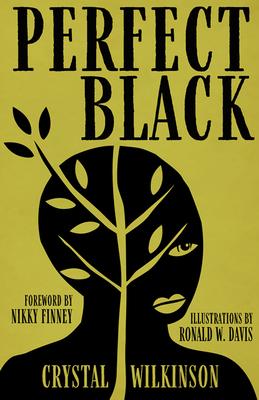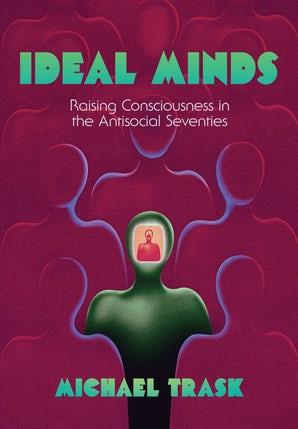 Perfect Black Perfect Black
University Press of Kentucky, 2021
Crystal Wilkinson
From the foreword:
"In Perfect Black, Crystal Wilkinson walks us back down the road she first walked as a girl, wanders us through the trees that lined the road where she grew up, where her sensibilities as a woman and a writer were first laid bare. In one of the first poems that opens the collection she is a woman looking back on her life, on the soil and mountains that first stamped the particular sound of her voice and she is deeply inquisitive about how it all fell into place: "The map of me can't be all hills & mountains even though I've been country all my life. The twang in my voice has moved downhill to the flat land a time or two." Perfect Black is a book of poems and legends about ancestry, culture, and the terrain of a Black girl becoming. It is a narrow and spacious terrain that enters the bloodstream of this black writing girl's body early. It is a country that she never truly exits even though different zip codes continue to fly through her wild, wondrous, winding life. We read and we hold on too."—Nikky Finney
|
 Ideal Minds: Raising Consciousness in the Antisocial Seventies Ideal Minds: Raising Consciousness in the Antisocial Seventies
Cornell University Press, 2020
Michael Trask
Following the 1960s, that decade's focus on consciousness-raising transformed into an array of intellectual projects far afield of movement politics. The mind's powers came to preoccupy a range of thinkers and writers: ethicists pursuing contractual theories of justice, radical ecologists interested in the paleolithic brain, seventies cultists, and the devout of both evangelical and New Age persuasions. In Ideal Minds, Michael Trask presents a boldly revisionist argument about the revival of subjectivity in postmodern American culture, connecting familiar figures within the seventies intellectual landscape who share a commitment to what he calls "neo-idealism" as a weapon in the struggle against discredited materialist and behaviorist worldviews.
In a heterodox intellectual and literary history of the 1970s, Ideal Minds mixes ideas from cognitive science, philosophy of mind, moral philosophy, deep ecology, political theory, science fiction, neoclassical economics, and the sociology of religion. Trask also delves into the decade's more esoteric branches of learning, including Scientology, anarchist theory, rapture prophesies, psychic channeling, and neo-Malthusianism. Through this investigation, Trask argues that a dramatic inflation in the value of consciousness and autonomy beginning in the 1970s accompanied a growing argument about the state's inability to safeguard such values. Ultimately, the thinkers Trask analyzes—John Rawls, Arne Naess, L. Ron Hubbard, Hal Lindsey, Philip Dick, Ursula Le Guin, Edward Abbey, William Burroughs, John Irving, and James Merrill—found alternatives to statism in conditions that would lend intellectual support to the consolidation of these concepts in the radical free market ideologies of the 1980s.
|